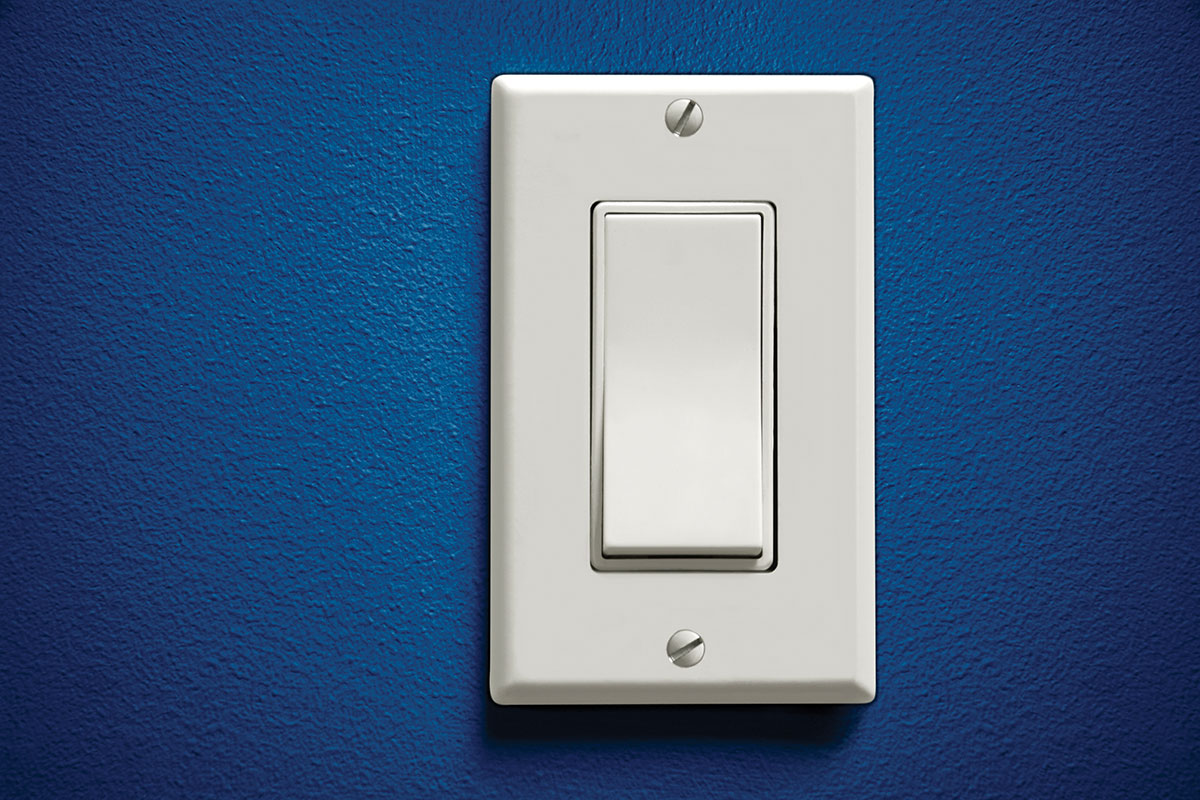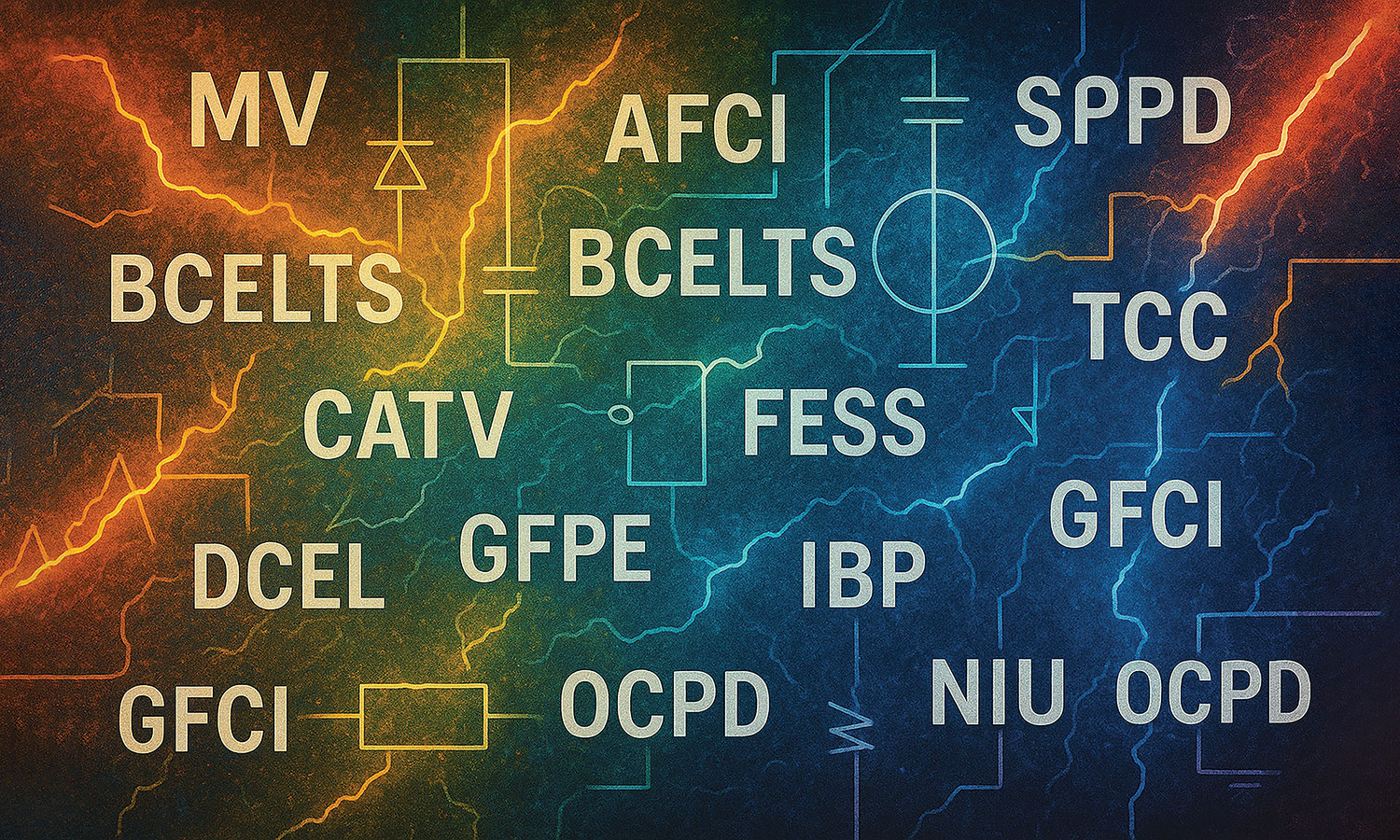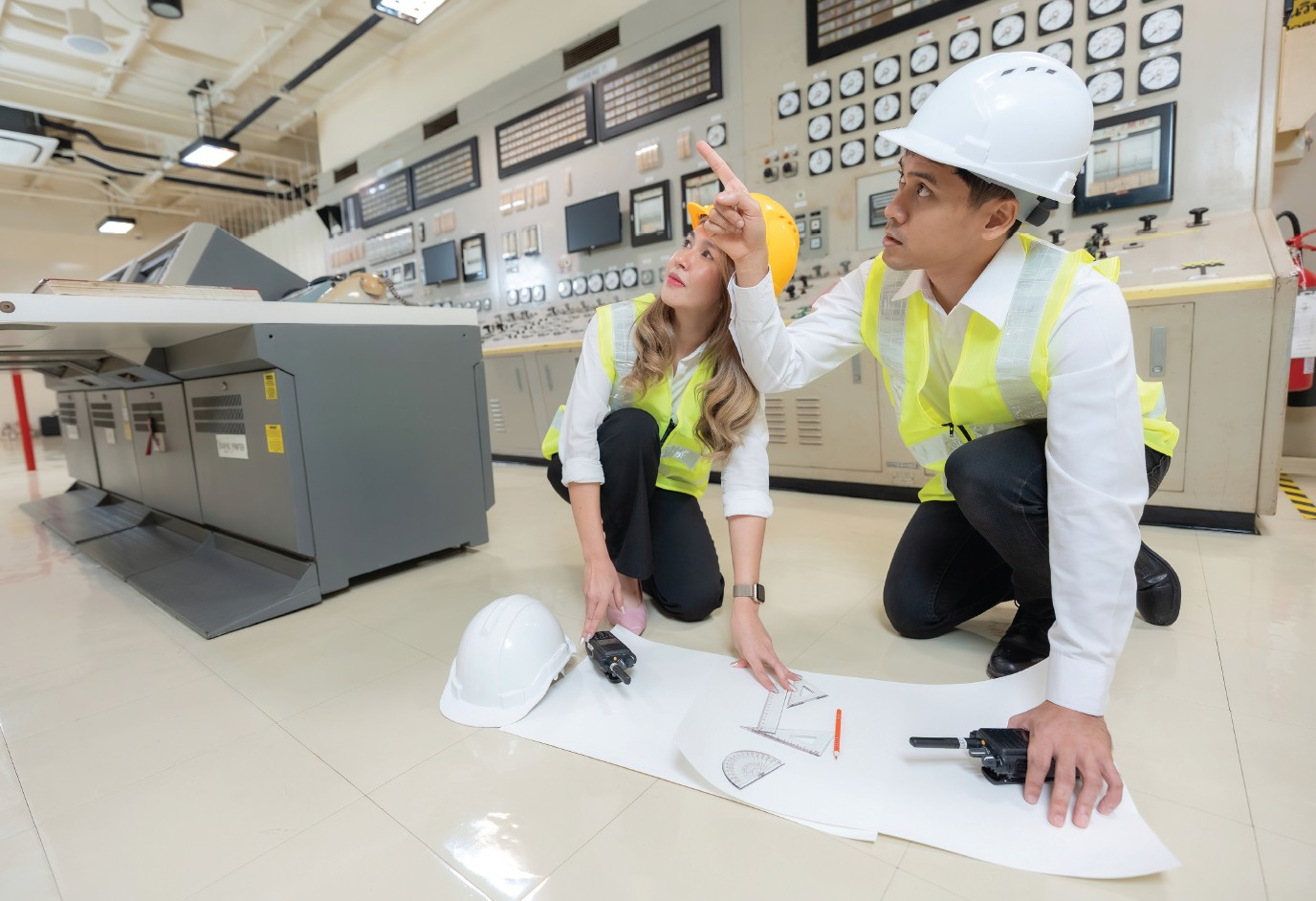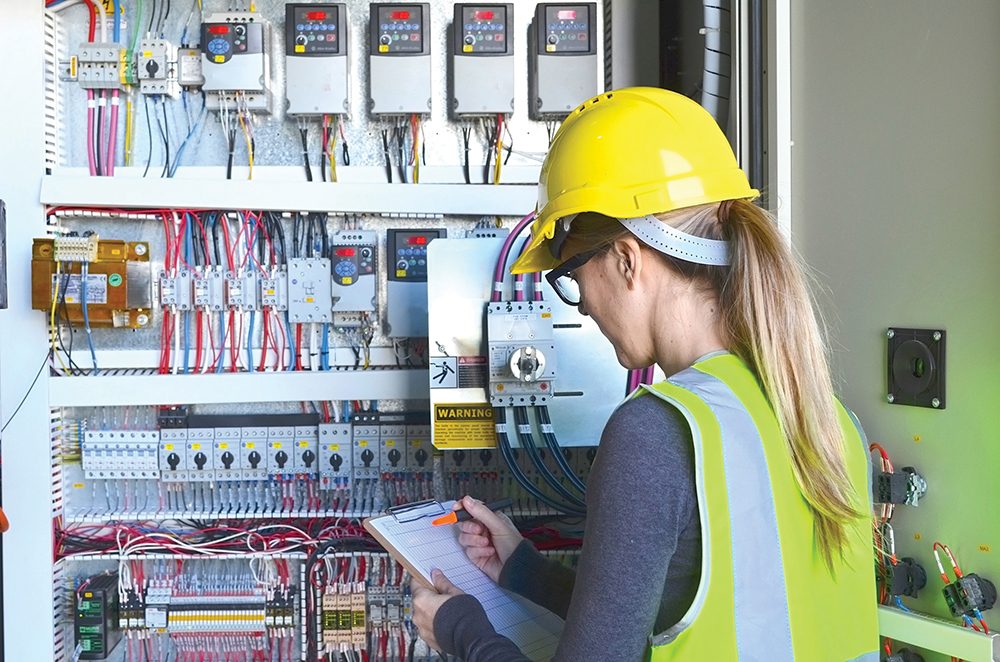All electrical inspectors have authority. The question is, How do they use it? Is it about their ego or about the work and safety for the customer?
Authority is needed in society to establish order; otherwise, there is chaos. Inspectors have authority for a purpose: to protect people and property. Some inspectors have misused their authority. That’s not what inspecting is about. Every electrical wireman or installer can recall from personal experience an inspector that in his view was unreasonable, unapproachable, or seemed to abuse his or her authority. Hopefully, they can also recall an electrical inspector who was professional and who possessed great experience and education, as well as good people skills, that they enjoyed working with; maybe, they even learned something from that inspector! Being this kind of professional should be the goal of every inspector.
All authority has its limits; everyone answers to someone. In order to have authority, one must be under authority. If a person gets out from under the authority, he may soon wind up with no authority and in trouble. Inspectors must follow the instructions of inspection supervisors, and work with them and the customers toward the goal of electrical safety. It would be nice if inspections always fit neatly in a box, but often they do not. How does the inspector deal with the situations when they do not? Existing installations can be an example of that.
If an insecure inspector inspects only to the letter of the law, and never considers alternate methods of code-compliance, he may need to reconsider his thinking. Is the inspector afraid of making a judgment call on what is safe or not, particularly if it does not fit perfectly with the written Code? Hopefully, not.
Attitude
In inspecting, as in life, attitude is everything. Inspectors must be able to maintain a good attitude, even under stress and with difficult customers. Are the people whose jobs they inspect or whose questions they answer viewed as customers or inconveniences? What is the attitude of the inspector when he is speaking with customers on the telephone or in person? Is the inspector generally happy and positive, or is he negative and sulky? Would the inspector want to be treated in the same manner if the “shoe were on the other foot”? Most inspectors work for public agencies, and nearly all work with the public. If they are having trouble keeping a good attitude, they must seek help.
Influence
Electrical inspectors are seen as authorities on the Code. If they handle themselves in a professional manner, people will respect and look up to them. That brings with it the power of influence, which can be wasted or used for good to help and serve others. Whether inspectors realize it or not, they have a huge influence in the lives of others. One way is through praising workers for doing a good job. Since most electrical inspectors worked “with the tools” before becoming inspectors, they remember important things such as pride in workmanship or fine craftsmanship, and the fulfillment of producing work that a person can be proud of. Inspectors can influence those whose work they inspect by giving sincere praise for a job well done. It will be appreciated by the workers, and it will encourage them all the more to do fine work. Everyone likes to receive a sincere compliment on a quality installation, but most people receive little or no encouragement. However, if the inspector is truly sincere, it will be seen, and the compliment will be received.
People tend to rise to the level of what is expected. An installer that is praised for good work will be encouraged to do more of it. He may be a true craftsperson, but no one has ever appreciated his efforts. Sincerely expressed admiration of a job well done will build the working relationship between the inspector and the installer, which is a very good thing.
Another benefit is that when sincere praise is given for a job well done, inspectors are actually making their job easier little by little, because the quality of electrical work in the jurisdiction will improve. If a positive working relationship can be developed with the electricians, contractors, and property owners, they will take the inspector to parts of the installation that may be questionable, or where there are definite code violations, or where safety hazards exist, rather than avoiding them because of their fear of how the inspector will react—or overreact. They will begin to see the electrical inspector as an ally, not an adversary. And, when corrections are written, they will be better received, because they will be viewed by customers as being constructive and necessary.
Professionalism
Handling people in a polite and professional manner is important. Being on time for scheduled inspections or appointments shows respect for the other person’s time. How an inspector presents himself and the inspection agency are important as well. Attire should be clean, professional, and appropriate. Hard hats, earplugs, or other safety protection may be required. Many states have standards for foot protection and clothing for workers. Inspectors should follow safety standards that are appropriate for the work situations and environments in which they find themselves. No inspector should consider himself above the law.
Customer Service and Communication
Individuals and companies that purchase electrical permits are customers, and it is important to treat them with respect. Can the customer reach the inspector for questions by telephone at some time in the day? Is the staff at the permit counter able to contact the inspector when he or she is in the field? Is the inspector keeping his word to the customers? Is the inspector trying to keep projects moving? Does she return phone calls? Does the inspector have an attitude of service?
Studies show that a large percentage of communication is caught or perceived through watching a person’s body language. People can read body language, and hear tone of voice. It helps to smile more, to focus on what is important, and not to be overwhelmed by things that do not matter.
It is good also to be a thankful person. After dealing with some customers, an inspector can be thankful that they are not a part of his everyday life! It is also a good practice after every inspection, when the inspector returns to his or her vehicle, to take just a moment and think, What could I have done better on this inspection? Then learn from it.
Sometimes an apology is in order. An inspector can choose to be humble, admit when he or she is wrong, or when he has come across poorly to a customer. Most people will appreciate it, and respect will be earned, which will improve the working relationship. If the inspector is willing to listen to others’ ideas, he may learn something.
Part of being a good inspector is not laying out the work for customers, but helping them to know what the real concerns are, and perhaps making suggestions as to how they can comply.
Education
Education is essential to being a good inspector. First, a good working knowledge of the Code is needed. The electrical industry is constantly changing and expanding, and electrical inspectors must grow with it in order to be qualified to inspect the work that will be seen. With good education and experience, an inspector’s comfort and confidence is increased, which shows in both his attitude and work. Second, inspectors should work to continue their education, and to earn certificates appropriate for all areas of their expertise. IAEI is here to help. Membership has countless benefits, with education, certification, seminars, and networking opportunities to help all inspectors to be the best at what they do.
Enforcement and Code Compliance
If the inspector can explain to his or her customers the reason the Code requires something, and how it affects their safety and protection, most people will comply with his requests. Knowing the objective the Code is trying to achieve and being able to explain it in a common sense and down-to-earth manner to most people—and in a technical manner to those who request it—will help the inspector to have a much better working relationship with the customers.
Many inspectors have been asked, What are your pet peeves? The assumption is that every inspector has pet peeves. Inspectors should look at the whole installation in a thorough and fair manner, evaluate for compliance with adopted codes and standards, and not have pet peeves. There is a perception among some installers in the field that some inspectors will focus on a certain few items and ignore the rest. Inspectors should not have unwritten rules that are enforced or requirements that cannot honestly be defended or explained. Part of being a good inspector is being able to explain why code-compliance is important, and why any particular requirement is needed.
Along that line, what is the electrical inspector accomplishing if he shows up on the job with a pocketful of red tags that can be easily seen by contractors and customers? Is that a good approach, or is he flexing his muscles? Is that the best way to get cooperation and compliance?
Consider the other side of the coin. Does the inspector make drive-by inspections and barely look at the work? Is the inspector talking too much about fishing or the ball game, hardly looking at the work, and yet signing it off? There are inspectors in the field that have done that, and it is irresponsible behavior. Very unsafe situations have occurred because of it. A conscientious inspector will never let it be said that the work wasn’t given a thorough and fair inspection—that is not what the customer is paying for.
Encouragement
An inspector’s power of influence can encourage others to be their best, to do better work, to take the next step in the trade, to pass an exam and to get a higher certification, or for others who are not yet in the trade to consider it seriously. The electrical trade needs new people to fill the demand that continues to grow in the United States. Helping others succeed creates personal satisfaction and great rapport with those the inspector deals with in the field.
Qualifications
What makes a good electrical inspector? Many people in the trade would say that he or she is a person:
1. with significant electrical field experience at a journeyman or master level; (Journeyman carries the connotation of having been around in the trade, working on a wide variety of installations, usually having traveled some, and being well-rounded. A journeyman should be able to perform any type of electrical installation—even though it is not his forte. He should be able to learn what he needs to get the job done right and completed within a reasonable amount of time, to get along with the electrical inspectors, and to be good to the customer and fellow workers. He should know how not to damage the place nor the tools and equipment, how to obey safety rules, and how to make the contractor money.)
2. who has served an apprenticeship or has some type of approved or equivalent training;
3. who has been tested, and has become certified by a recognized testing organization;
4. who has good public relations skills, who listens to others’ concerns, who can make decisions and communicate well, written and orally; and
5. who is secure in his or her position, does not abuse his authority, has the confidence to evaluate electrical installations for code-compliance, and is willing to consider alternate methods that meet the objectives of the Code.
All inspectors should work toward these goals. If an inspector has poor people skills and poor working relationships, it will handicap him or her in doing the job. It is important that all electrical inspections be thorough and of high quality, but appropriate and fair. If an inspector does any less, is he really serving the interest of safety and the best interests of his customers?
Standard Bearer
Electrical inspectors work every day to uphold a standard for safety that must be met for the protection of persons and property. They can and should take pride in what they do; but at the same time, they must be professional and do their best.
This article has discussed the importance of how electrical inspectors wield their authority, and the importance of maintaining a good attitude as they approach their work. It has discussed the influence that inspectors have to affirm and encourage others toward electrical safety. Additionally, the article has discussed the importance of professionalism, customer service and communication skills, and the need for continued education as the electrical industry continues to expand. Finally, it has discussed the fact that electrical inspectors are standard bearers for electrical safety codes and standards. If professional, qualified and certified electrical inspectors do not lift up a standard against unsafe installations, who will?














Find Us on Socials